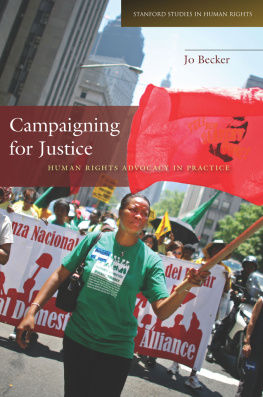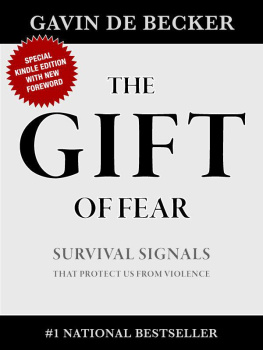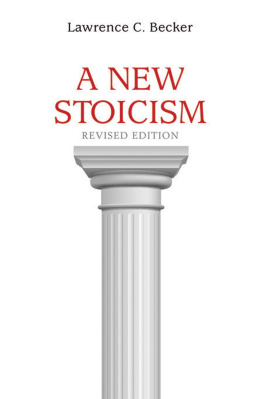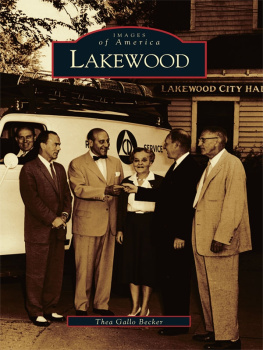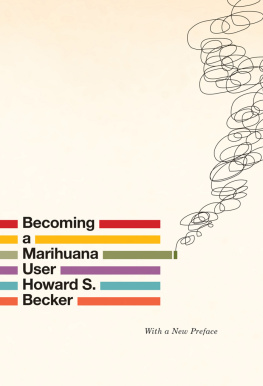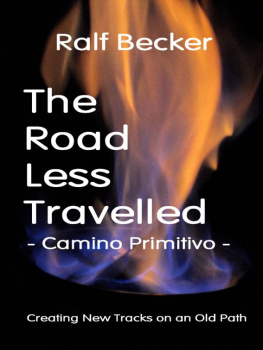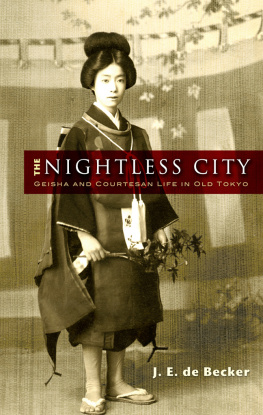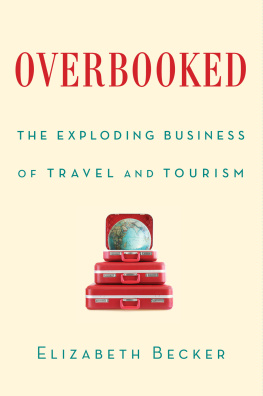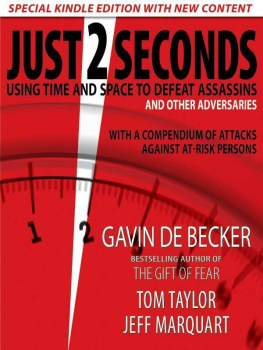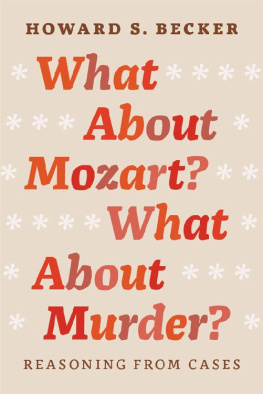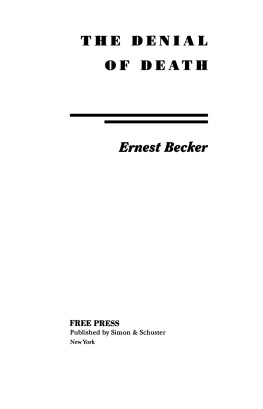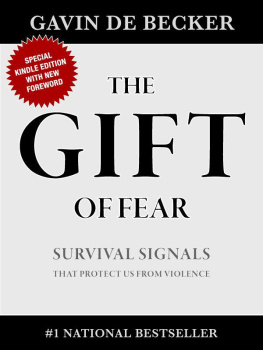Becker - Evidence
Here you can read online Becker - Evidence full text of the book (entire story) in english for free. Download pdf and epub, get meaning, cover and reviews about this ebook. City: Chicago, year: 2017, publisher: University of Chicago Press, genre: Science. Description of the work, (preface) as well as reviews are available. Best literature library LitArk.com created for fans of good reading and offers a wide selection of genres:
Romance novel
Science fiction
Adventure
Detective
Science
History
Home and family
Prose
Art
Politics
Computer
Non-fiction
Religion
Business
Children
Humor
Choose a favorite category and find really read worthwhile books. Enjoy immersion in the world of imagination, feel the emotions of the characters or learn something new for yourself, make an fascinating discovery.
- Book:Evidence
- Author:
- Publisher:University of Chicago Press
- Genre:
- Year:2017
- City:Chicago
- Rating:4 / 5
- Favourites:Add to favourites
- Your mark:
- 80
- 1
- 2
- 3
- 4
- 5
Evidence: summary, description and annotation
We offer to read an annotation, description, summary or preface (depends on what the author of the book "Evidence" wrote himself). If you haven't found the necessary information about the book — write in the comments, we will try to find it.
Evidence — read online for free the complete book (whole text) full work
Below is the text of the book, divided by pages. System saving the place of the last page read, allows you to conveniently read the book "Evidence" online for free, without having to search again every time where you left off. Put a bookmark, and you can go to the page where you finished reading at any time.
Font size:
Interval:
Bookmark:
Howard S. Becker
The University of Chicago Press
Chicago and London
The University of Chicago Press, Chicago 60637
The University of Chicago Press, Ltd., London
2017 by The University of Chicago
All rights reserved. Published 2017
Printed in the United States of America
26 25 24 23 22 21 20 19 18 17 1 2 3 4 5
ISBN-13: 978-0-226-46623-1 (cloth)
ISBN-13: 978-0-226-46637-8 (paper)
ISBN-13: 978-0-226-46640-8 (e-book)
DOI: 10.7208/chicago/9780226466408.001.0001
Library of Congress Cataloging-in-Publication Data
Names: Becker, Howard Saul, 1928 author.
Title: Evidence / Howard S. Becker.
Description: Chicago ; London : The University of Chicago Press, 2017. | Includes bibliographical references and index.
Identifiers: LCCN 2016043308 | ISBN 9780226466231 (cloth : alk. paper) | ISBN 9780226466378 (pbk. : alk. paper) | ISBN 9780226466408 (e-book)
Subjects: LCSH: Social sciencesMethodology. | Social sciencesResearch. | Social sciencesPhilosophy.
Classification: LCC H61 .B433 2017 | DDC 300.72/3dc23 LC record available at https://lccn.loc.gov/2016043308
 This paper meets the requirements of ANSI/NISO Z39.481992 (Permanence of Paper)
This paper meets the requirements of ANSI/NISO Z39.481992 (Permanence of Paper)
Son, the old man says, no matter how far you travel, or how smart you get, always remember this: Some day, somewhere, a guy is going to come up to you and show you a nice brand-new deck of cards on which the seal is never broken, and this guy is going to offer to bet you that the Jack of Spades will jump out of this deck and squirt cider in your ear. But, son, the old guy says, do not bet him, for as sure as you do, you are going to get an ear full of cider.
Damon Runyon
In memory of Donald T. Campbell, whom I taught with and learned from
I have been working on this book since I entered the field of sociology in 1946, at a very tender age, although I realized thats what Id been doing only very recently. In a serious way, everyone Ive met since then and everything Ive read has contributed to the book you have before you: all the teachers and students and colleagues and friends.
Certain people contributed to the last stages of my work by reading earlier versions of the manuscript and commenting on them, especially Charles Camic, Tom Cook, Frank Furstenberg, John Walton, Charles Ragin, and Iddo Tavory. My correspondence with Richard Howe, who was dealing with similar problems, was more than helpful. Rob Faulkner, as usual, was a wonderful source of stimulating citations and thoughts. My thanks to all these folks, even though I didnt always follow their suggestions. They helped me substantially nevertheless.
Doug Mitchell, my tireless and tirelessly supportive editor at the University of Chicago Press, has been helping me get through the goofiness of being an author for at least thirty years. What would I have done without that? Or without the valiant efforts of Kyle Wagner.
No one knows better than I do that the book would never be what it has become without the people at the Press who handle all the tasks of production, the editors and designers authors depend on to make them look good. In this case, I want particularly to thank copyeditor Lois Crum, who made the writing clearer and better expressed. I didnt always do as she suggested, but the book is better for her suggestions, which I mostly accepted. And I also owe thanks to Isaac Tobin for his design of the book, which readers will want to get into just because of its welcoming look.
Dianne Hagaman suffered my cranky outbursts and despairs and made sure the book got done, reading what seemed to me like endless revisions without complaining, getting tired, or losing her good temper and optimism. Never could have done it without you. Thanks.
In the early 1960s, Paul Wallin and Leslie C. Waldo, two Stanford sociologists, wanted to learn how social class affected childrens school performance (a question that still concerns social scientists). They administered a questionnaire to 2,002 eighth-grade boys and girls. To measure social class, they asked the children to answer a question from August Hollingsheads then well known and often used Index of Social Position (the Hollingshead version assigned family class position based on the answers to this question and a similar question about education):
[Describe] your real father, if you live with him. If you are not living with your real father answer... about the man you live with who is supposed to be taking his place. It may be a step-father, foster father, an uncle or somebody else.
Most of the time does he work for himself or for somebody else?
____ he works for himself or has his own business
____ he works for somebody else
____ I dont know what he does
What is his work or job most of the time?
He _________________________. (Wallin and Waldo 1964, 291)
The two sociologists supplemented the sometimes sketchy answers with two additional sources of information: school records and records kept by school nurses.
Wallin and Waldo dont describe the content of their research or the uses they intended these data for. Nor do they discuss the problems of meaning Ill raise shortly. But they probably thought a fathers occupation would serve as a substantial clue to (if not a definitive measurement of) social class, a combination of the economic and social realities of the parents way of life and the lives their children might have. They thought this report of the work the father did, this single fact, would give them an indirect way to guess at the familys income and wealth, and thus an inexact, perhaps not explicitly formulated but nevertheless not meaningless, measure of the parents hopes for their childrens education. And, beyond that, the way of life and (why not?) the family culture that would send the children into the adult world with what we now call cultural as well as economic capital, opening some possibilities to them and closing off othersall this related to the level the father reached on the Hollingshead scale. Every social scientist who puts such questions into a questionnaire has some version of these uses in mind.
Knowing the familys social position would almost surely suggest more specific imagery readers could use to flesh out the implications of class position. Researchers often invoke such images when they write about the theoretical implications of a projects results. The first volume of W. Lloyd Warners Yankee City Series (194159), at the time of the Wallin-Waldo research a well-known years-long study, in an anthropological style, of a small New England community contained a series of lengthy and detailed composite portraits (constructed from details pulled out of material on many somewhat similar families) of family life at different class levels, from lower-lower to upper-upper. And James Bossards studies of family table talk (1943, 1944), based on verbatim accounts of what researchers heard real families say over their meals, gave examples of the mechanisms at work in daily life that might create an observable link between the work the father did and the kind of opportunities and life it opened up for childrenall of this being what the idea (you could say, as many people often do say, the concept) of social class might evoke in a social scientist stimulated by answers to such a questionnaire item. Heres Bossard:
Much of the familys sense of economic values, and the childs training in them, are indicated in the following sentences appearing repeatedly in the case material upon which this article is based. Go easy on the butter, its fifty cents a pound. Eggs are sixty cents a dozen now. Bills shoes have to be soled. What, again? Why I just paid two dollars for soles three weeks ago. I think you ought to be ashamed to waste bread when thousands of Chinese children are starving. Mother, Mary soiled her new dress. Well, she had better take care of it. We cant buy another until after Christmas. It is the absorption of values of this kind, so constant in normal family life, which constitutes such a big gap in the training of the child reared in an institution. (Bossard 1943, 300)
Font size:
Interval:
Bookmark:
Similar books «Evidence»
Look at similar books to Evidence. We have selected literature similar in name and meaning in the hope of providing readers with more options to find new, interesting, not yet read works.
Discussion, reviews of the book Evidence and just readers' own opinions. Leave your comments, write what you think about the work, its meaning or the main characters. Specify what exactly you liked and what you didn't like, and why you think so.


